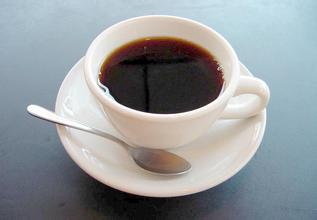The taste of Guatemalan coffee with sour and sweet fruit introduces the characteristics of fine coffee beans in the manor area.
Guatemala is located in the middle of North and South America, and its geographical position occupies an important position in Central America. Guatemala covers an area of approximately 108899 square kilometers. Land features can be divided into: volcanic plateau, lowland tropical forests, volcanic sandy coastal plains on the Pacific coast, and virgin land on the Caribbean coast. The Sierra Madre Mountains of Central America span east and west of Guatemala, covering an area of about 2/3 and containing 34 volcanoes. Rivers and lakes dot the landscape, while equatorial forests and plain jungles cover it. There are also undeveloped volcanic beaches on the Pacific and Caribbean coasts.
Coffee produced in Guatemala is one of the world's top coffees, because Guatemala is a volcanic terrain with high altitude, and these volcanoes are the most ideal places to grow coffee. The tasters prefer this blend of flavoured coffee with a spicy flavour to other varieties. The extra-hard coffee beans here are rare good coffee, it is full of particles, delicious, balanced acidity. Guatemala has also received attention for its giant coffee beans.
Coffee was introduced to Guatemala in 1750 by Father Jesuit, and German colonists developed the coffee industry in the late 19th century. Today, most of the coffee industry is produced in the south of the country. Guatemala has a total of seven coffee producing areas, each producing coffee flavor is different, but in summary, Guatemala coffee presents a mild and mellow overall texture, elegant aroma, and with a special and pleasant acidity similar to fruit acid, as if to become a coffee aristocrat, among which Antigua Classic coffee (Antigua Classic) is deeply recommended by coffee connoisseurs around the world.
Antigua is the oldest and most beautiful city in America. As early as 1543, Antigua was the colonial capital of Central America, and the Spanish government was also located here. After a major earthquake in 1773, Antigua was completely destroyed, so the capital was moved to Guatemala. Antigua City is about 40 kilometers west of Guatemala City. Colonial buildings were destroyed by the earthquake. After the earthquake, the original state was preserved as a whole. It can be said to be a living historical museum.
Antigua is a famous coffee producer, rich volcanic soil, low humidity, strong sunlight and cool evening winds are the characteristics of Antigua. Three spectacular active volcanoes-Agua, Acatenango and Fuego-form a beautiful valley. Fuego active volcano also occasionally adds misty dust. Every 30 years or so, the area around Antigua is hit by a volcanic eruption, which provides more nitrogen to the already fertile land, and sufficient rainfall and sunshine make the area more suitable for growing coffee. Antigua coffee is produced at Camana Estate, where the best quality coffee is El Pulcal, which is not only of good quality, but if compared with other Latin American coffees, this coffee can be said to be quite complete, rich and amazing, if you enjoy it with chocolate, there will be unexpected discoveries. The most important thing is that it is very rich in flavor, richer in taste, and it has a fascinating tobacco flavor, known as "the most perfect coffee bean"

Important Notice :
前街咖啡 FrontStreet Coffee has moved to new addredd:
FrontStreet Coffee Address: 315,Donghua East Road,GuangZhou
Tel:020 38364473
- Prev

Introduction to the characteristics of Indonesian Java Coffee Flavor and Manor production area
Sumatra, etc. Each caffeine variety has a different origin and has its own strong character, such as the masculine Mantenin, which resembles the character of an iron and steel man; mellow, fragrant blue mountain coffee, and gentle women are addicted to missing. Java Coffee, which has always been light and fragrant, is suitable for those who like light sex. Such people don't want to take drinking coffee as a serious thing.
- Next

Introduction to the characteristics of Kilimanjaro Coffee
As the country's main cash crop, coffee is produced in the Mohi district of Kilimanjaro, where frequent crustal movements and active volcanoes give fertile soil to the mountains, as well as strong texture and soft acidity. She shows a delicate fragrance, with aromas of wine and fruit, and the aftertaste is amazing. The country's
Related
- Detailed explanation of Jadeite planting Land in Panamanian Jadeite Manor introduction to the grading system of Jadeite competitive bidding, Red bid, Green bid and Rose Summer
- Story of Coffee planting in Brenka region of Costa Rica Stonehenge Manor anaerobic heavy honey treatment of flavor mouth
- What's on the barrel of Blue Mountain Coffee beans?
- Can American coffee also pull flowers? How to use hot American style to pull out a good-looking pattern?
- Can you make a cold extract with coffee beans? What is the right proportion for cold-extracted coffee formula?
- Indonesian PWN Gold Mandrine Coffee Origin Features Flavor How to Chong? Mandolin coffee is American.
- A brief introduction to the flavor characteristics of Brazilian yellow bourbon coffee beans
- What is the effect of different water quality on the flavor of cold-extracted coffee? What kind of water is best for brewing coffee?
- Why do you think of Rose Summer whenever you mention Panamanian coffee?
- Introduction to the characteristics of authentic blue mountain coffee bean producing areas? What is the CIB Coffee Authority in Jamaica?

